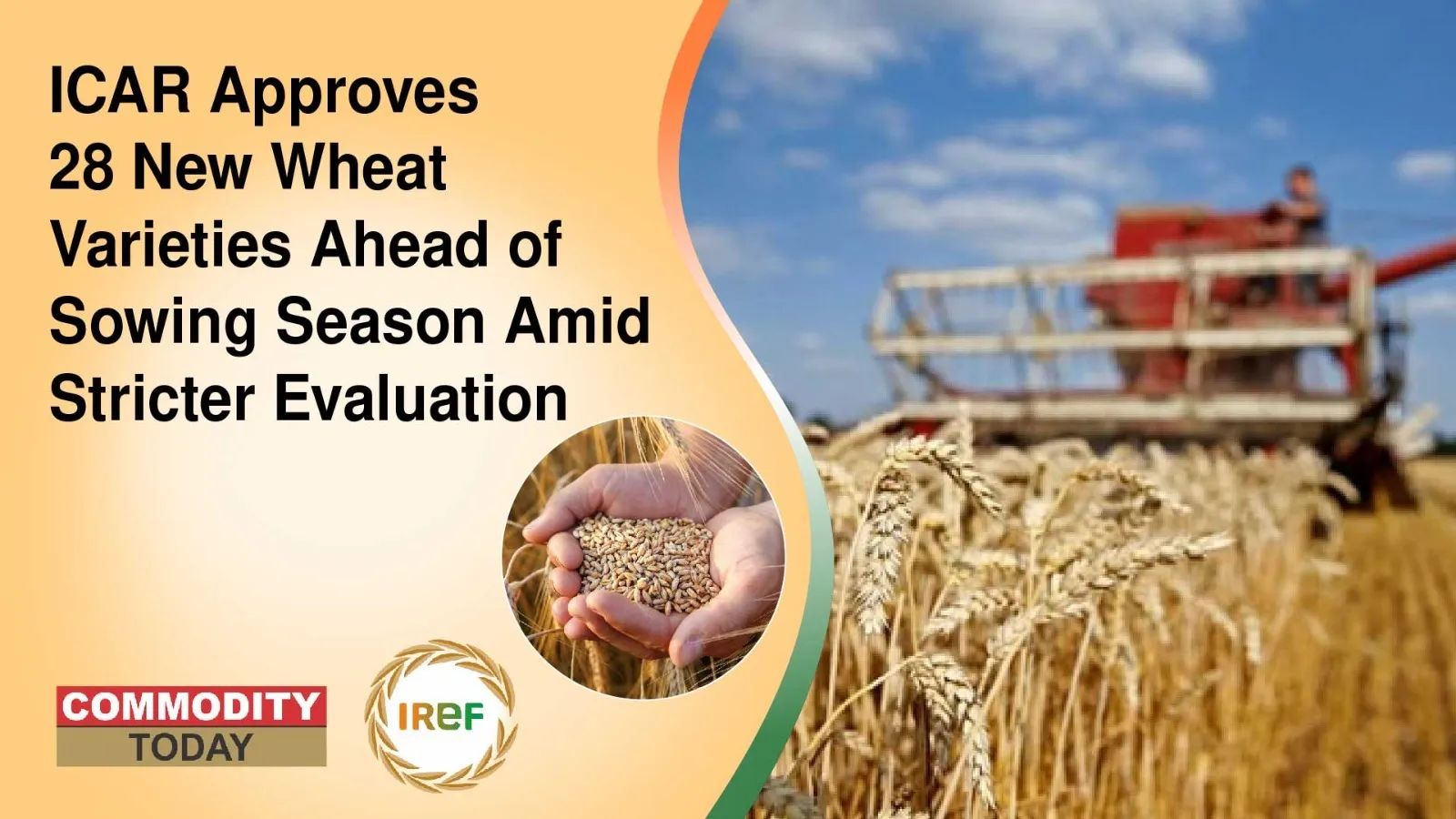ICAR Approves 28 New Wheat Varieties Ahead of Sowing Season Amid Stricter Evaluation

In a major significant move, a key panel of the Indian Council of Agricultural Research (ICAR) has approved 28 new wheat varieties and barley for the seed sub-committee to consider for lease. This development emerges when the wheat sowing season is all set to begin.
In this approval process, the varietal Identification committee(VIC) gathered in August under ICAR’s Assistant Director General SK Pradhan, reviewed requests for 48 new varieties of wheat and barley. In this meeting, at least 28 were identified for approval by the Central Sub-committee on Crop standards, notification, and release of varieties. Notably, this selection comprises 23 new wheat varieties and five new varieties of barley submitted by government institutes and private sector companies. The process of approving is under strict assessment after Agriculture Minister Shivraj Singh Chouhan expressed disappointment with farmers not adopting the various wheat varieties released commercially. He posed a question concerning the rationale behind commercially releasing varieties that farmers ultimately do not grow.
Only two were identified for approval, out of the four wheat varieties, the Punjab Agriculture University (PAU) that are PBW 906 and PBW 915. PBW 915 is specific for its yield advantage and resistance to wheat rusts in the North-East Plain Zone, whereas PBW 906 is fine for the central zone, providing higher yield and rust resistance.
India expects record wheat production this year
India is expecting record wheat production this year (117.5 million tonnes), and intends for even more (119 million tonnes). To achieve this target, farmers need access to better, climate-resilient seeds. Now, experts have also expressed their concerns since in the past, some wheat varieties were released for areas where wheat isn’t usually grown (like Andhra Pradesh or Tamil Nadu), demand for wheat is growing faster than production. Therefore, they ensure that only useful, tested varieties are sanctioned and farmers are able to grow and benefit from these seeds.